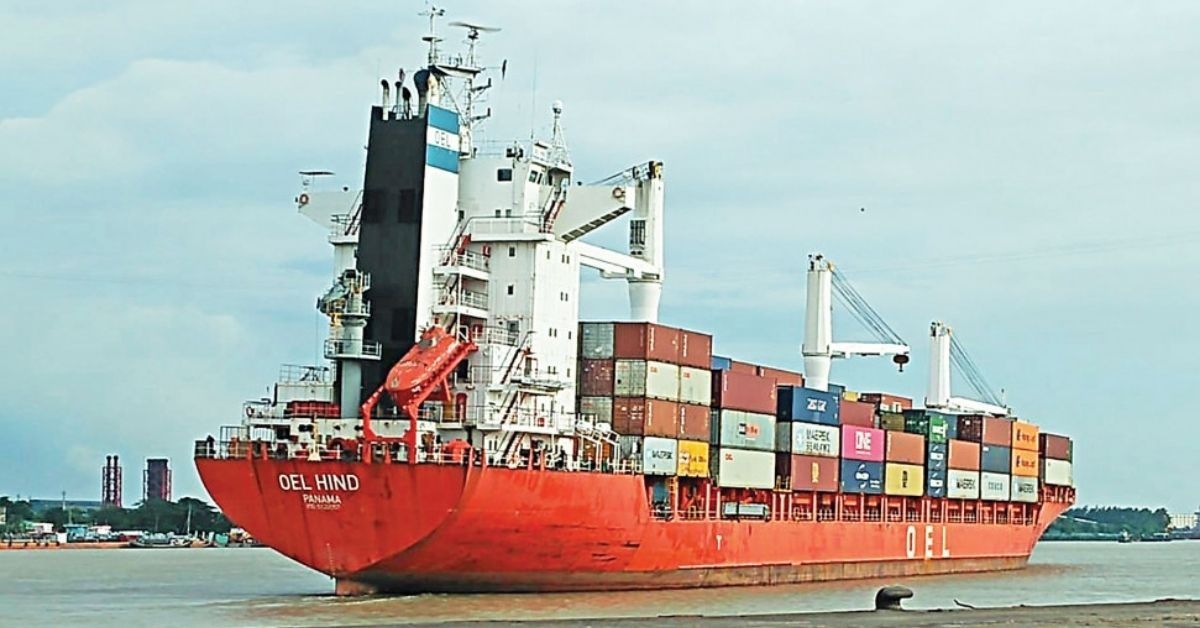Two Congressmen from California have introduced a bill seeking to reduce emissions from shipping lines calling at the country’s ports.
Congressman Alan Lowenthal (CA-47) and Congresswomen Nanette Barragán (CA-44), representing the districts for the ports of Long Beach and Los Angeles, respectively, are co-sponsoring the Clean Shipping Act, which will set both carbon intensity standards for fuels used by ships, including eliminating carbon by 2040, and requirements to eliminate in-port ship emissions by 2030.
The bill was introduced in the U.S. House of Representatives by Congressmen Lowenthal on Tuesday. He first first eluded to the legislation in early June ahead of the last meeting of UN International Maritime Organization’s Marine Environment Protection Committee, which is aiming to finalize the shipping agency’s regulatory strategy for eliminating greenhouse gas emissions from ships in 2023.
Currently, the IMO has set only an initial strategy for a 50% reducing in overall GHG from shipping by 2050, compared to 2008 levels. But with the shipping industry representing nearly 3% of global CO2 emissions, the agency is under mounting pressure to strengthen its target to align it with the Paris Agreement goal of keeping global average temperature rise to within 1.5-degrees Celsius this century—requiring a minimum of net zero GHG emissions by 2050.
“Since my earliest days of public service on the Long Beach City Council three decades ago, I have worked to clean up the maritime industry,” Congressman Lowenthal said. “This legislation continues this effort .”
According to Lowenthal, the bill directs the Environmental Protection Agency (EPA) to:
Set carbon intensity standards for fuels used by ships. The bill sets progressively tighter carbon intensity standards for fuels used by ships consistent with a 1.5° Celsius decarbonization pathway. These standards would require lifecycle carbon dioxide-equivalent reductions of 20 percent from January 1, 2027, 45 percent from January 1, 2030, 80 percent from January 1, 2035, and 100 percent from January 1, 2040, relative to the 2024 emissions baseline. The EPA will retain regulatory discretion to ensure the continued success of the ocean freight system through this transition, while achieving maximum carbon reductions.
Set requirements to eliminate in-port ship emissions by 2030. By January 1, 2030, all ships at-berth or at-anchor in U.S. ports would emit zero GHG emissions and zero air pollutant emissions.
“The Clean Shipping Act of 2022 is bold legislation that will make the United States a global climate leader in addressing pollution from the shipping industry and protect the health of port communities in Los Angeles and around the country,” Congresswoman Barragán said. “This is a big step forward for climate-smart ports and a clean energy future for every community. Proud to support this legislation as an original co-sponsor. Thank you to Congressman Lowenthal for your leadership and partnership to clean up the maritime industry and advance the greening of our ports.” “We no longer have the luxury of waiting to act,” Congressman Lowenthal said. “We must face the fact that we are at a tipping point in the climate crisis; we must move beyond fossil fuels, and that includes air, land and sea transportation sources. No emissions sources can go overlooked. This legislation will set clear standards and drive the investment and innovation we need to transition to a zero-carbon future. It will clean up our ports once and for all, with a straightforward nationwide policy. This bill is the right policy for the future of our planet, for the health of our communities, and ultimately for the resiliency of goods movement.”







